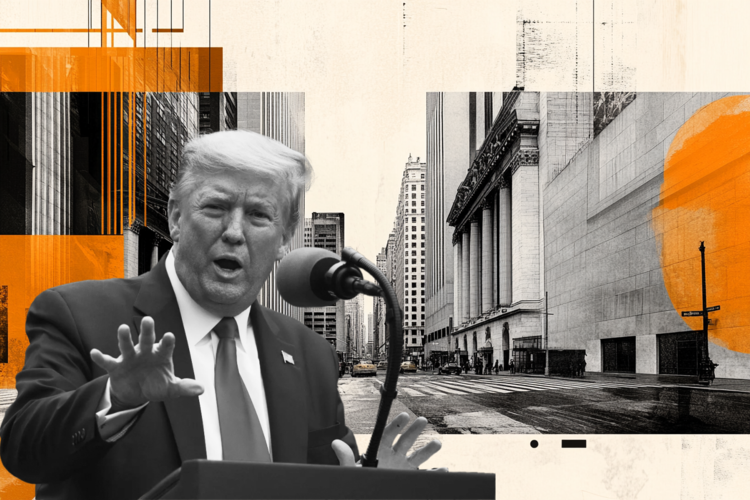- EUR/GBP trades softer around 0.8245 in the early European session on Wednesday.
- Hopes for further monetary easing from the ECB on Thursday weigh on the Euro.
- The BoE is expected to keep the rate unchanged next week as policymakers signaled they will only cut gradually.
The EUR/GBP cross remains defensive near 0.8245 during the early European trading hours on Wednesday. Growing speculation that the European Central Bank (ECB) will cut another interest rate at its December meeting continues to weaken the Euro (EUR) against the British Pound (GBP).
Investors might prefer to wait on the sidelines ahead of the ECB’s interest rate decision on Thursday. The ECB is anticipated to cut the Deposit Rate to 3.0% from 3.25%. It would be the third consecutive reduction by the ECB amid a gloomy outlook for the eurozone. “While there is a strong argument for the ECB to accelerate the pace of policy easing by delivering a (half-point) cut, the majority of the governing council appears to prefer a quarter-point reduction,” analysts at Capital Economics.
On the other hand, Bank of England (BoE) policymakers hinted that they would cut the interest rate gradually. “BoE signals on gradual rate cuts have been very strong lately, suggesting very low odds of a cut next week,” said JP Morgan economist Allan Monks.
Traders are currently betting that the BoE will cut interest rates just three times between now and the end of 2025, reducing Bank Rate by a total of 75 bps. The expectation that the UK central bank will likely move more slowly to reduce borrowing costs than the ECB provides some support to the GBP and creates a headwind for the EUR/GBP cross.
The Euro FAQs
The Euro is the currency of the 19 countries of the European Union that belong to the eurozone. It is the second most traded currency in the world, behind the US dollar. In 2022, it accounted for 31% of all foreign exchange transactions, with an average daily turnover of more than $2.2 trillion per day. EUR/USD is the most traded currency pair in the world, accounting for an estimated 30% of all transactions, followed by EUR/JPY (4%), EUR/GBP (3%) and EUR/AUD (2 %).
The European Central Bank (ECB), headquartered in Frankfurt, Germany, is the reserve bank of the eurozone. The ECB sets interest rates and manages monetary policy. The ECB’s primary mandate is to maintain price stability, which means controlling inflation or stimulating growth. Its main tool is the increase or decrease in interest rates. Relatively high interest rates (or the expectation of higher rates) tend to benefit the euro and vice versa. The Governing Council of the ECB makes decisions on monetary policy at meetings held eight times a year. Decisions are made by the directors of the Eurozone’s national banks and six permanent members, including ECB President Christine Lagarde.
Eurozone inflation data, measured by the Harmonized Index of Consumer Prices (HICP), are an important econometric indicator for the euro. If inflation rises more than expected, especially if it exceeds the ECB’s 2% target, it forces the ECB to raise interest rates to bring it back under control. Relatively high interest rates compared to their counterparts tend to benefit the euro, making the region more attractive as a place for global investors to park their money.
The published data measures the health of the economy and may have an impact on the euro. Indicators such as GDP, manufacturing and services PMIs, employment and consumer confidence surveys can influence the direction of the single currency. A strong economy is good for the Euro. Not only does it attract more foreign investment, but it may encourage the ECB to raise interest rates, which will directly strengthen the euro. Otherwise, if economic data is weak, the Euro is likely to fall. Economic data for the four largest eurozone economies (Germany, France, Italy and Spain) are especially significant, as they represent 75% of the eurozone economy.
Another important data that is published about the Euro is the trade balance. This indicator measures the difference between what a country earns from its exports and what it spends on imports during a given period. If a country produces highly in-demand export products, its currency will gain value simply from the additional demand created by foreign buyers seeking to purchase those goods. Therefore, a positive net trade balance strengthens a currency and vice versa in the case of a negative balance.
Source: Fx Street
I am Joshua Winder, a senior-level journalist and editor at World Stock Market. I specialize in covering news related to the stock market and economic trends. With more than 8 years of experience in this field, I have become an expert in financial reporting.







